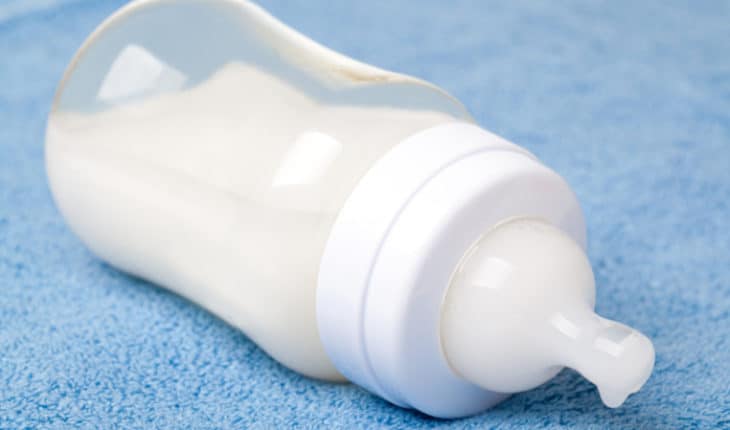We reported previously that some widely-used infant formulas are heavily contaminated with the known neurotoxin, aluminium.
Infant formulas are the only form of nutrition for the majority of neonates and, thereafter, infants up to 12 months of age. Through using infant formulas, parents may be inadvertently feeding their baby with up to 600 μg of aluminium per day, every day, many from birth.
Breastfeeding would reduce this intake of aluminium to less than 50 μg of aluminium per day.
The source of the aluminium in some infant formulas is largely unknown but is most likely originating in one or more of the many ingredients. Processing of infant formulas in aluminium-based receptacles and equipment is another potential source of contamination, as is the aluminium-based packaging used by many of the leading brands.
The source of the aluminium in some infant formulas is largely unknown but is most likely originating in one or more of the many ingredients. Processing of infant formulas in aluminium-based receptacles and equipment is another potential source of contamination, as is the aluminium-based packaging used by many of the leading brands.
There are currently no data on how the developing infant gut deals with an intake of aluminium or how the under-developed kidney excretes any absorbed aluminium. There are no data on how the early and leaky infant blood brain barrier copes with an aluminium challenge. Infants are uniquely vulnerable to aluminium whether in infant formulas or as adjuvants in vaccines.
Some neonates and infants require specialised infant formulas designed specifically to help them gain weight or deal with allergies and intolerances. We have now measured the aluminium content of these prescription infant formulas and found that they too are, in the main, heavily contaminated with aluminium. The worst examples were formulas designed as nutritional supplements to aid weight gain and, alarmingly, those formulas made to address allergies and intolerances.
The immediate (perhaps this is why ‘breast is best’?) and longer term consequences of loading up infants, including those already more vulnerable and requiring prescription formulas, with the known neurotoxin aluminium are unknown and there are no plans, neither by government nor industry, to fill this void with quality independent research.
The infant formula industry is totally complacent with respect to contamination of their products by aluminium. Why is there no mention of contamination of infant formulas by aluminium in the Infant Nutrition Industry Code of Practice ?
It was of interest that several of the prescription infant formulas measured in our recent study were lower in their aluminium content than the majority of products tested both recently and historically.
These expensive formulas are perhaps, formulated with better or purer ingredients demonstrating that where there is a will, infant formulas do not have to be heavily contaminated with aluminium.
- Infant vaccines - 23rd April 2021
- Imagine you are an Aluminum Atom - 5th November 2020
- Aluminium in human brain tissue - 8th May 2020







